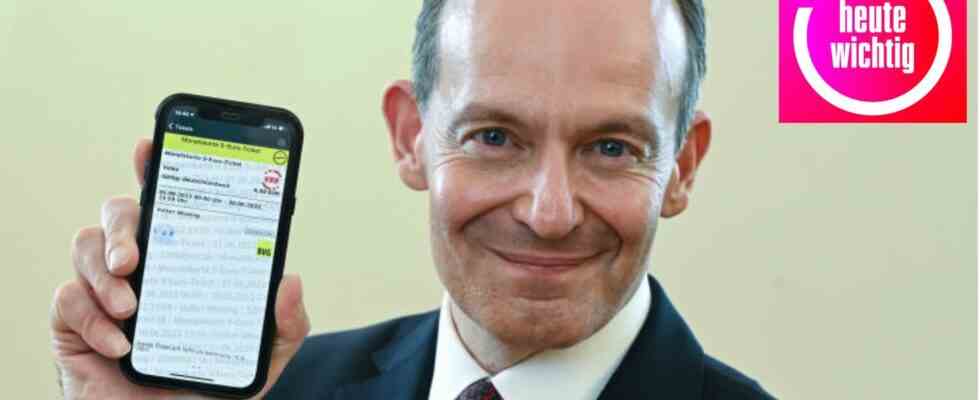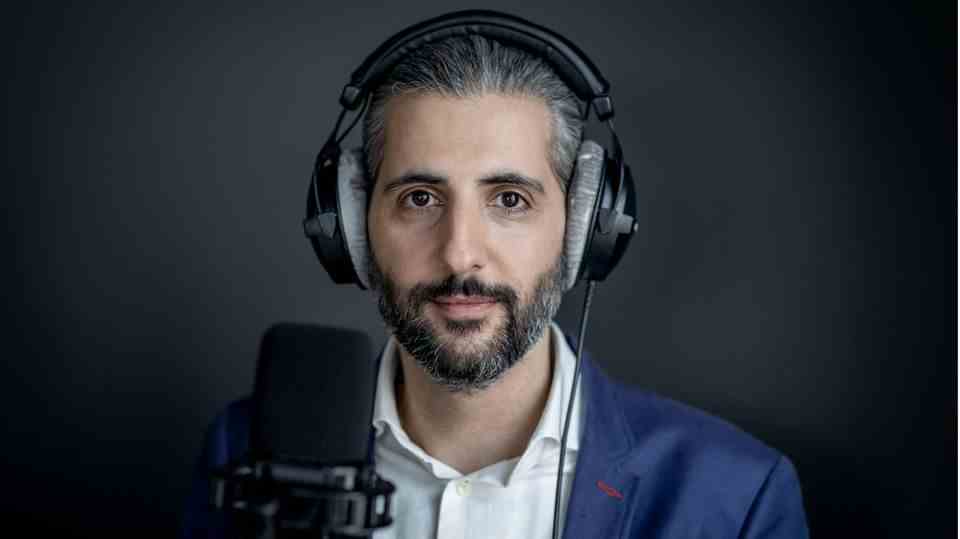podcast
“important today”
Public transport chaos in Germany: How Transport Minister Volker Wissing slows down the train
Transport Minister Volker Wissing proudly shows his 9-euro ticket. But in reality it is slowing down the train, says Dirk Flege, managing director of the “Allianz pro Schiene”.
© Britta Pedersen / DPA
No matter what many people think of the 9-euro ticket, it has definitely triggered one thing: a debate about the quality of local transport in Germany. Now it is Transport Minister Volker Wissing’s turn – and he has to deliver.
In August 2021, the former CSU Transport Minister Andreas Scheuer presented a plan with 181 infrastructure measures to modernize local public transport in Germany. Larger cities should be connected with each other and regions should be better networked every half hour. So far so good – the problem: Not a single one of these measures has been implemented since then, says Dirk Flege. Flege is the managing director of the “Pro-Rail Alliance” and so far has not been very enthusiastic about the traffic light government – especially about FDP Transport Minister Volker Wissing. “The new Federal Transport Minister Wissing sees this target timetable and the Deutschlandtakt as a project of his predecessor. Now they are considering in the Federal Ministry for Digital Affairs and Transport whether it might not be possible to do it completely differently. With the result that nothing happens at all. Everyone invents the wheel new and that is of course poison for a long-term orientation”, says Dirk Flege in the 300th edition of the podcast “important today”.
Whether e-car or public transport: Transport needs a holistic concept
The “Pro-Rail Alliance” is an association that wants to modernize rail transport and make it more sustainable. Environmental organizations and trade unions as well as passenger organizations and companies are involved in this. Its chairman, Dirk Flege, advocates not thinking about the electric car separately from buses and trains, but rather: “Step one must be to design a holistic concept – where do we actually want to go with traffic in Germany? We’d also like to go very far watched until 2030, 2040.”
The German ICE is slowed down
The infrastructure would have to be renewed, especially on the railways, because Germany has a route problem. Examples from other countries show how it’s done, according to Flege: “In France, the high-speed trains have their own routes, only the TGVs run there, here that would be the ICE. There are no slow freight trains for which you have to brake. Then there are Ideally, these routes are also fenced off, then you won’t have any wild boars running in front of you.”
In principle, better public transport is possible, but this requires work that is independent of political parties, and rails must be expanded instead of dismantled. Federal Transport Minister Volker Wissing could prove himself and initiate important rail construction projects. Only the results – you will probably only see them in ten to twenty years.
Your subscription to “important today”
Don’t miss any episode of “today important” and subscribe to our podcast at: AudioNow, Spotify, Apple Podcasts, deezer, cast box or on their favorite podcast app. If you have any questions or suggestions, please write to us at [email protected].


